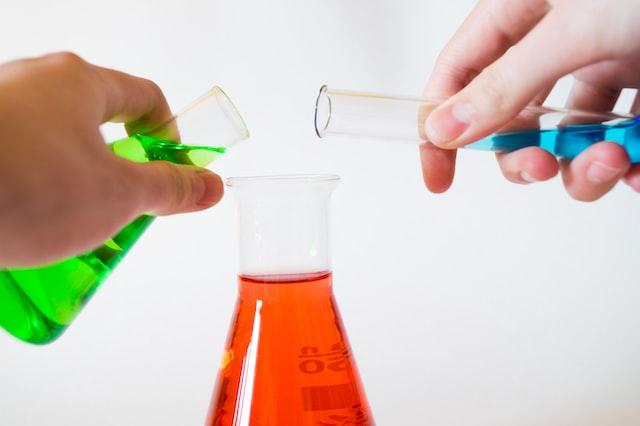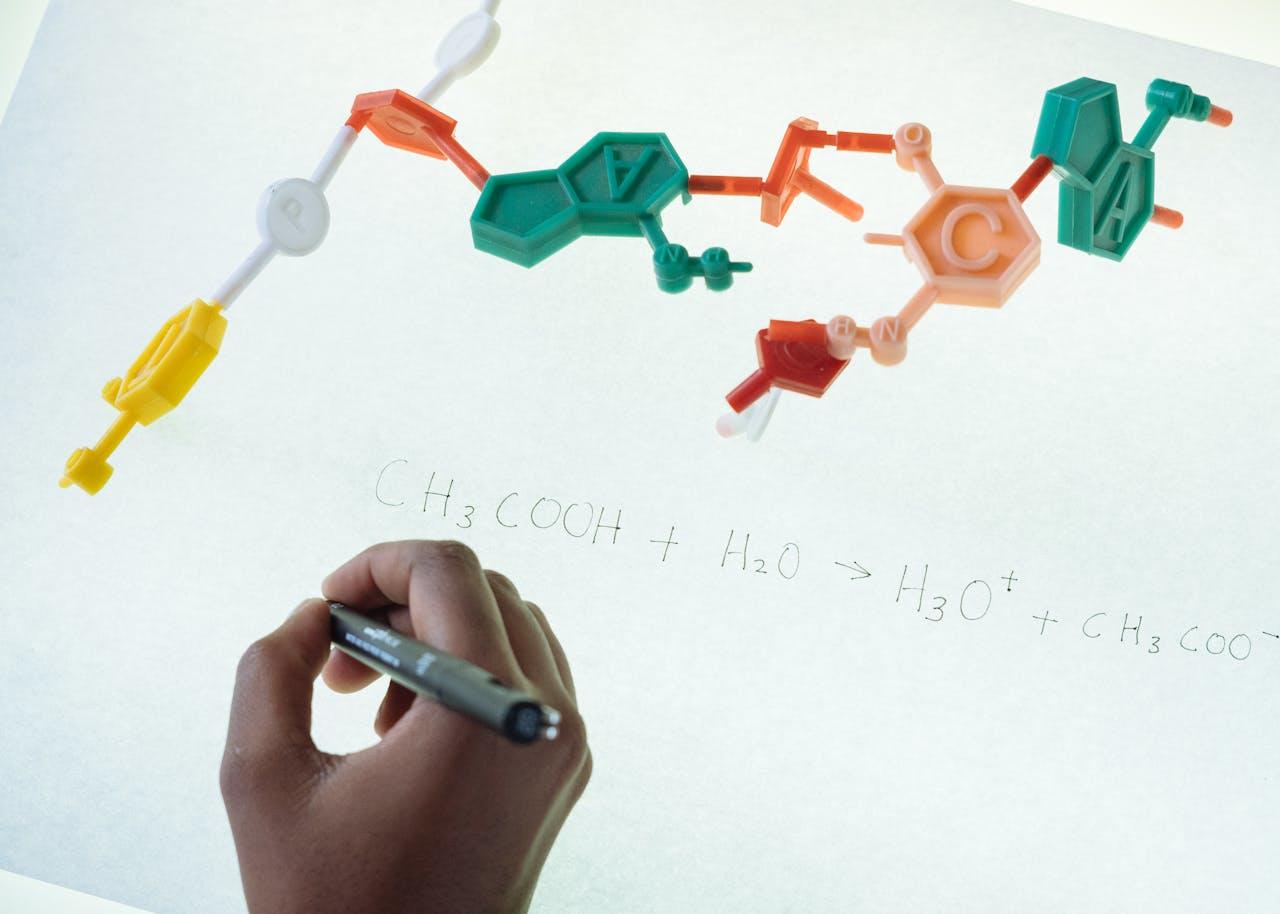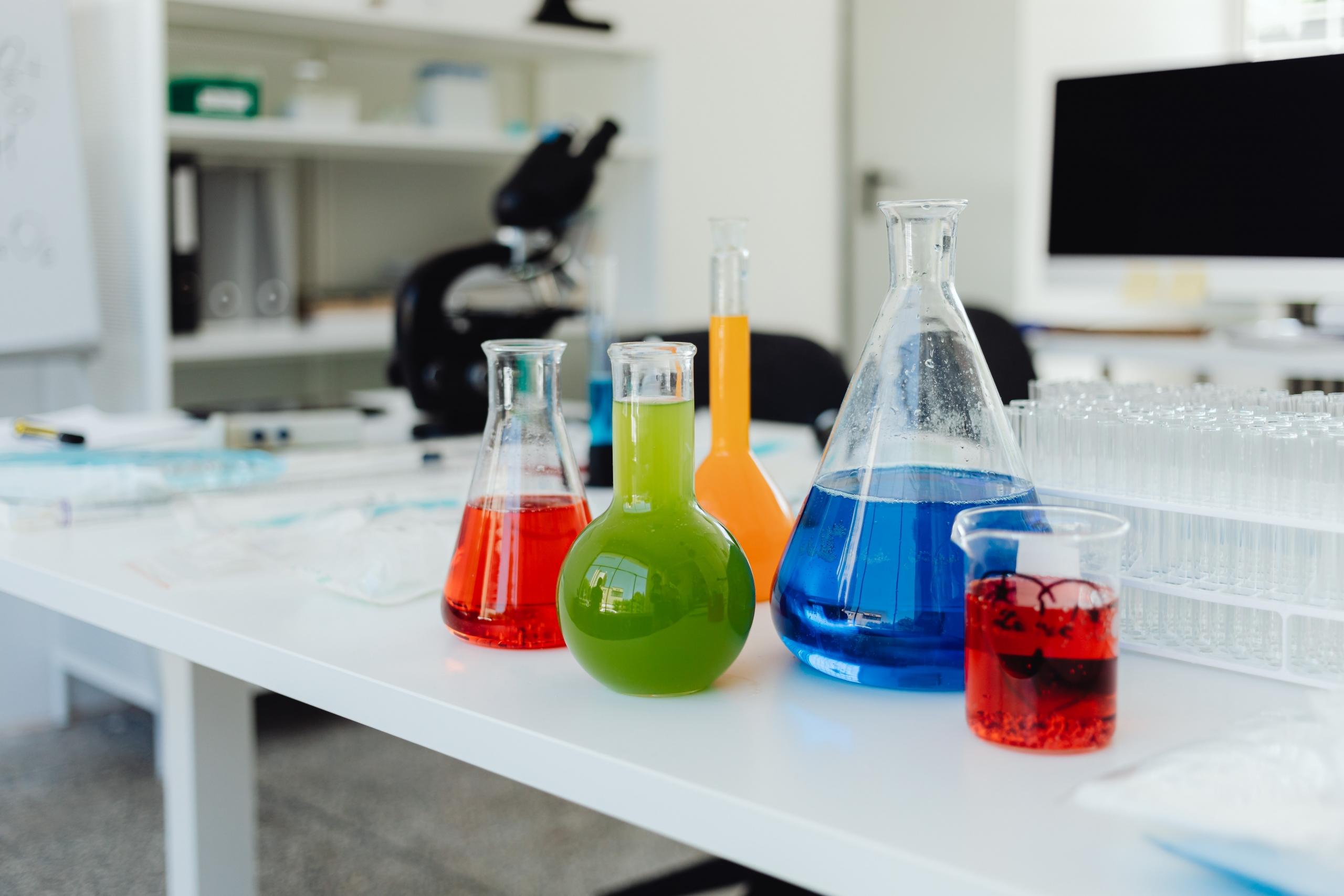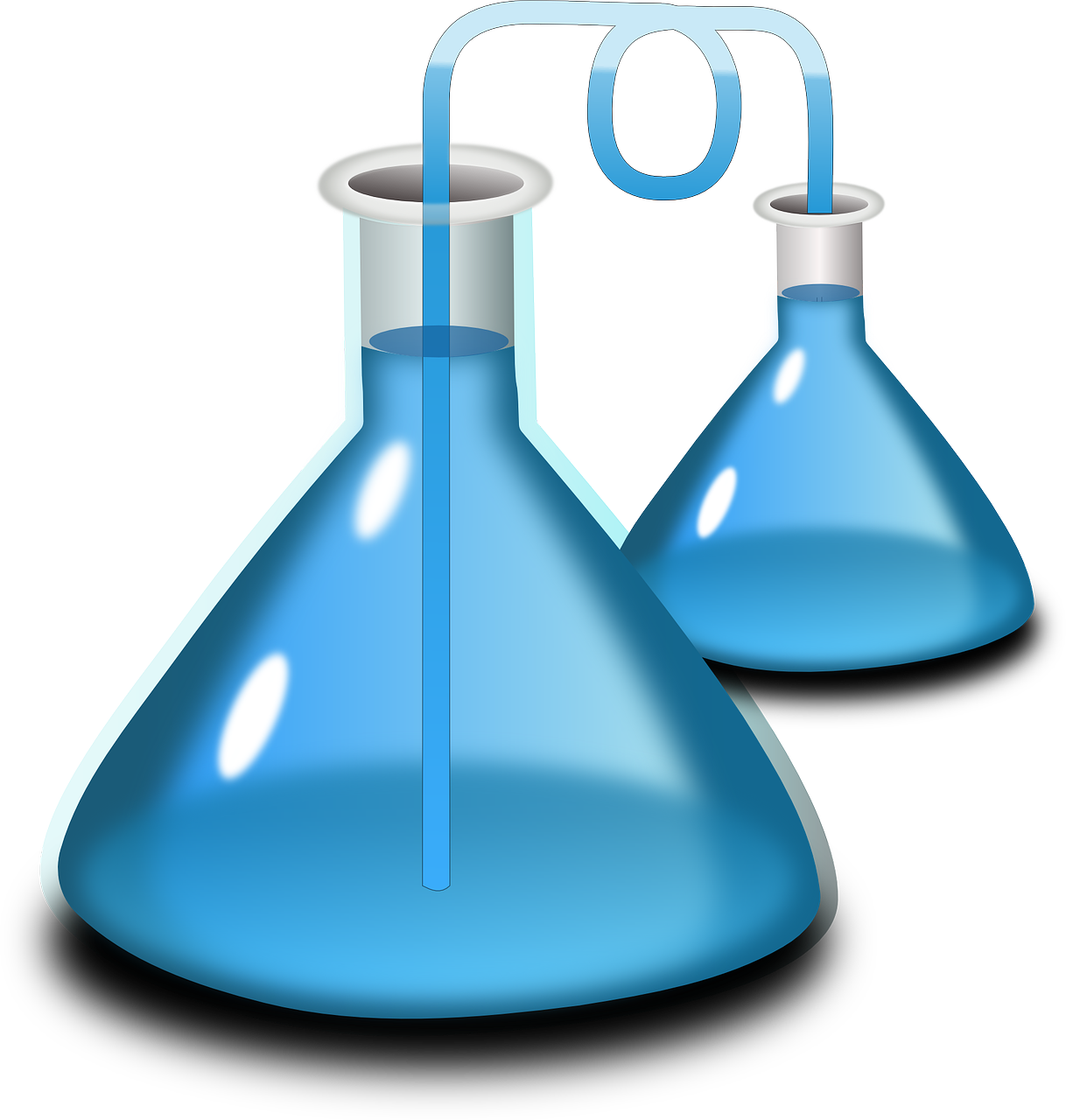Want to know the difference between someone who genuinely loves Chemistry and one who doesn't?
Ask them about their favourite bond.
In this context, James Bond doesn't count.
If they can correctly name and describe chemical bonds like ionic bonds and covalent bonds, you know they are the real deal.
Of course, there's more to chemistry than bonds. When you learn Chemistry, you'll also get to talk about various changes in reactions, the composition of elements and compound structures, which require lots of in-depth study and differentiation of focus.
That's why in this article, we will be looking at various branches of chemistry, their respective significance in our daily lives as well as the importance of studying chemistry as a whole.

Organic Chemistry vs Inorganic Chemistry. What Are The Differences Between These Two?
If you have decided to take Chemistry throughout your Form 4 and Form 5 studies, you will come across a total of 13 chapters which encompass physical chemistry, organic chemistry as well as inorganic chemistry.
The chapters are as follows:
- Chapter 1: Introduction to Chemistry
- Chapter 2: Matter and the Atomic Structure
- Chapter 3: The Mole Concept, Chemical Formula and Equation
- Chapter 4: The Periodic Table of Elements
- Chapter 5: Chemical Bond
- Chapter 6: Acid, Base and Salt
- Chapter 7: Rate of Reaction
- Chapter 8: Manufactured Substances in Industry
- Chapter 9: Redox Equilibrium
- Chapter 10: Carbon Compound
- Chapter 11: Thermochemistry
- Chapter 12: Polymer
- Chapter 13: Consumer and Industrial Chemistry
The above chapters serve as an important foundation to have a stronger understanding of more complex Chemistry topics in the future.
That being said, there's a high chance that you will only come across terms like organic chemistry and inorganic chemistry during your pre-university studies such as STPM or A-Level studies.
Now, let's talk about the main differences between organic chemistry and inorganic chemistry.
When we talk about organic chemistry, we are generally referring to the study of molecules that are related to living beings. They are mostly present in the human body and other living things like plants and animals.
Both carbon (C) and hydrogen (H) must be present in the compound in order for it to be considered an organic compound. Some organic compounds also have oxygen (O).
Some examples of organic compounds include:
- Carbohydrates (Glucose, sucrose, fructose etc)
- Deoxyribonucleic acid (DNA) and ribonucleic acid (RNA)
- Lipids (cortisol, cholesterol etc)
- Proteins (enzymes, haemoglobin)
- Vitamins
- Caffeine
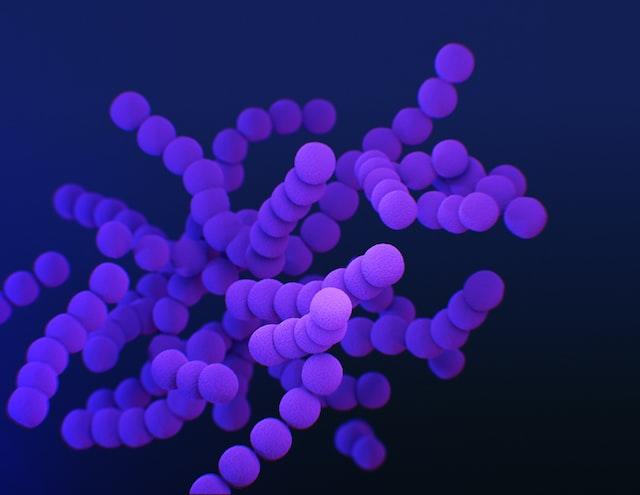
Photo by CDC on Unsplash
On the other hand, inorganic compounds do not have carbon-hydrogen together. They are made up of non-living single elements.
Some examples of inorganic compounds include:
- Water (H2O)
- Acids
- Bases
- Salts
Read up on the contributions of these amazing chemists here.
What Are Some Important Applications of Physical Chemistry In Our Daily Life?
Apart from organic chemistry and inorganic chemistry, physical chemistry is also one of the most studied chemistry branches.
Physical chemistry combines knowledge and theories of physics such as heat, energy and matter alongside chemistry principles.
You'll be surprised that physical chemistry plays a vital role in our everyday life. Here are two important examples that you should know about.
Batteries
Can you imagine our world without batteries? The operations of a variety of devices such as clocks, calculators and even our mobile phones will not go on smoothly.
An important chemical reaction takes place inside a battery where electrons flow from one electrode to another (the cathode and anode) where this repeated process transforms into electrical energy. The battery also contains electrolytes to transport charged ions to the electrodes.
Photosynthesis
You've probably studied this term during your Biology lessons but the internal process of photosynthesis is essentially a chemical process.
When green plants take in the light energy from the Sun through the chlorophyll, it will then convert water, carbon dioxide and minerals in the plants to carbon dioxide and organic compounds (glucose), Furthermore, the chemical energy that is produced during this process is also utilized to facilitate the overall growth of the plants.

Can't Decide To Pursue Biology or Chemistry? Maybe You Should Find Out More On Biochemistry.
We have seen how the studies of Physics, Biology and Chemistry can overlap with one another. Some of you may be leaning towards the blend of physics and chemistry whereas another group of you would prefer to study more about the relationship between biology and chemistry.
The good news is there is a chemistry branch that can let you enjoy both worlds aka biochemistry!
If you are interested to take your passion for these two subjects to the next level, you should do some research on this field based on these two important questions.
What topics will you study in Biochemistry at university?
A Biochemistry undergraduate programme is generally a three-year course. For example, under the Biochemistry degree at the University of Malaya, you will study balanced and comprehensive theoretical and practical subjects such as:
- Introduction to Computational Biology
- Protein Biochemistry
- Clinical Biochemistry and Physiology
- Advanced Molecular Biology
- Metabolism and Regulation of Carbohydrates and Lipids
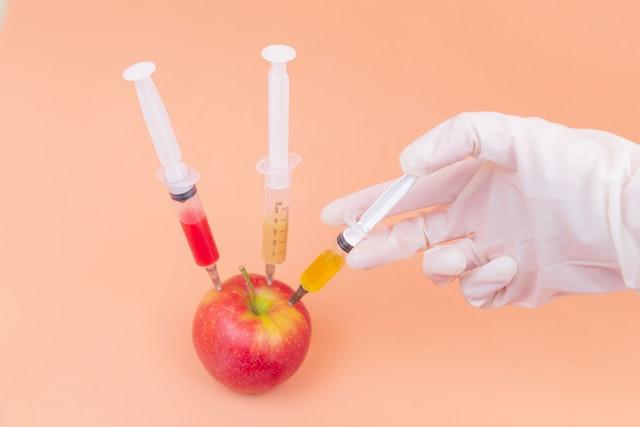
Photo by Diana Polekhina on Unsplash
What are the career prospects of a biochemist graduate?
Upon graduation, here are some examples of places where you can seek employment from:
- Water and agricultural companies
- Pharmaceutical industries
- Biotechnology corporations
- Food industry
- Cosmetic industry
Check out the benefits of learning Chemistry.
Never Heard Of Analytical Chemistry Before? Here Are Three Important Things To Know.
Another popular branch of chemistry that is highly demanded is none other than analytical chemistry. In fact, analytical chemistry sets a strong foundation for those who love to contribute to the research and development field of chemistry one day.
Don't worry if you are unfamiliar with this branch, we got you covered.
Point 1: It is a Chemistry branch that deals with lots of measurements and experiments.
This study of chemistry encompasses both quantitative and qualitative methods of studying various chemical compounds and reactions. It requires you to be precise during every laboratory experiment. You can't run away from lots of calculations, and tabulation of results when you are doing your analysis.
Point 2: If you are planning to venture into this field, it's important to have solid computer skills and be well-versed with various machines.
As an analytical chemist, you are in charge of conducting lots of experiments using the right tools and equipment in order to come out with the most accurate answer and to solve problems that arise.
This includes mastering the right software to input nutritional values found in a food sample and knowing the right technique to handle the machine to identify the components of a food sample, for instance.
Point 3: It has a wide range of career options.
Some of the occupations that you can go into for this field include:
- Toxicologists
- Policy researchers
- Product chemists
- Environmental Impact Assessment (EIA) Officers
- Laboratory Supervisors and many more
In other words, if you are someone who is passionate about Chemistry and calculation, someone who is meticulous and detailed-oriented and loves to work in a lab setting, analytical chemistry could be for you!
To kickstart this journey of learning more about analytical chemistry, you could start by reading these resources for studying Chemistry.
What's The Step To Further Your Studies In Chemistry For Your Tertiary Education In Malaysia?
So, we have learnt about the information of some of the most prominent chemistry branches namely organic chemistry, inorganic chemistry, biochemistry and analytical chemistry.
If Chemistry is your favourite subject and you have been scoring consistently well in this subject, there's a good chance that you could be considering making chemistry part of your future study plans or even career prospects.
To begin with, here are the two steps to pay attention to if you intend to pursue Chemistry at a higher education level.
Step 1: Start building a strong foundation in your Chemistry subject right now through private tutoring
Private tutoring is certainly one effective way that will consistently help you to ace your Chemistry subject through different educational levels whether you are learning it at SPM, IGCSE, STPM, A-Levels or even a degree.
We highly recommend you to find a Chemistry tutor via Superprof!
At Superprof, you can opt for flexible learning arrangements in terms of learning mode (home tutoring/online tutoring), learning schedule (anytime and anywhere), learning methodology (different focus/teaching style) as well as learning fees (you get to set your maximum budget and choose your preferred hourly rate).
Having a private Chemistry tutor can help you to build confidence and competence when you are preparing for major examinations consistently and help you to improve through detailed feedback.

Photo by Scott Graham on Unsplash
Head to the Superprof Malaysia homepage and start browsing the tutors' profiles to book your first Chemistry lesson!
Step 2: Enrol in your preferred Chemistry related undergraduate programme after completing your Pre-University studies
Granted that there are so many chemistry-related degrees that are offered in Malaysia, it is so important to know which specialisation you want to go into.
Take your time to review and research the core subjects that are offered by the universities as well as the endorsement of the programmes. For Malaysia, it's important that the programme is acknowledged by the Jabatan Pertahanan Awam (JPA) and Institut Kimia Malaysia (IKM) so that you can be accepted as a registered chemist in the country.
Don't forget to explore these platforms to learn Chemistry.
We hope you enjoyed learning about the various branches of chemistry through this article. May you be inspired to explore the world of chemistry from different angles and create a long-lasting bond with this subject!
Summarise with AI:

